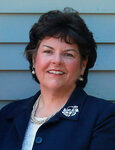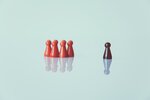

During this critical time, we're being told we have to "social distance." Practically, exactly what does this mean?
It's all about protecting yourself and protecting others. It starts with staying six feet apart from one another and be very aware of what you come in contact with, what you have close proximity to, what you touch, or what is airborne.
I was at the gas station yesterday. The attendant told me he was washing down the pump nozzle every hour. Every hour…I'm concerned that this sounds good to people. Any public surface needs to be sanitized after EVERY use. How would you like your dentist sterilizing their instruments every 3 or 4 patients…? Decreasing our Exposure. That's where the power is. For those thinking, "I'm helpless against the virus," you are indeed, NOT. You control where you go, with whom, what you touch, and essentially, your level of exposure.
It's disturbing to see Broadcasts of various politicians and health experts, standing one foot apart. How I wish they modeled what they are asking of the general public. No one is immune.
Are gloves a good protection now?
Yes, absolutely, but like anything, there is a correct use of gloves. Think of gloves as a second layer of skin. It protects you from contact with potentially infectious material. Let's be specific. Someone sneezes into their hand. Using that same hand, picks up the nozzle at the gas pump. Material from the sneeze is now on the nozzle (even if invisible). You pick up the nozzle with your bare hand. If the nozzle is contaminated with the virus, it isn't going to absorb through your skin. However, it's likely you'll touch your face, your credit card, your wallet, keys, or steering wheel with that hand. Maybe YOU don't touch your face, and you don't transmit the virus. Who is the next person to use the car, touch the keys, or steering wheel, and touch their own face? Now let's run by that again, but this time you have a glove on. You touch the nozzle with the glove; you do not have any exposure to your skin. When you finish at the pump, you use your gloved hand to put the nozzle back in place. If you touch your wallet or card with the gloved hand, it's just like your skin in the previous scenario. Once the glove or your hand has touched anything you can't confirm is clean...it's dirty, and then whatever comes in contact with the glove or hand...is also dirty. Tag… you're it. The key with gloves is to realize that they are the layer that you can remove, to keep your hands "clean." Removing and discarding them correctly is the key to good use.
Last night on the news, I saw the owner of a restaurant wearing bright blue gloves. He was tearful about the impact of reduced business but so thankful for the take-out option. As he put a bag of food from his restaurant into his car for delivery, He then took his gloved hand and wiped the tears from his eyes. His gloved hand is now contaminated. He will touch what? His door handle, the steering wheel, the radio, and guess what: YOUR FOOD BAG.
So, yes, gloves protect YOU from what you touch. But they also pass on whatever you touch, and whatever is on the glove, to others. If you don't have medical or food service gloves, substitute "doggie bags," sandwich baggies, or anything that can be laundered or discarded can be used as a makeshift glove.
Imagine that every surface is coated with peanut butter. Your job is not to get it on your skin, in your eyes, nose, mouth, or anywhere near your face. If you get through the day with no PEANUT BUTTER…YOU WIN. IF you don't, you have increased your risk.
What about air transmission?
There's lots of media attention about surfaces and cleaners and hands: all good, all true. However, THE most efficient way that COVID-19 is transmitted is through the air. Inside your breath, is moisture. Inside that moisture is what we call "droplets." Inside the droplets is infectious respiratory material: The Common Cold, The Flu, and COVID-19.
The notion that it is completely safe to go to the grocery store and stand one foot away from the clerk...who has waited on 100 other people during his shift...with no facial protection, doesn't make sense. I see many clerks wearing gloves, but no masks.
What can we do that you recommend?
Whenever you go out, you increase your risk.
That's the truth.
Thank you so much, Joanne.
Joanne MacInnis, RN, is the founder and president of Aberdeen Home Care, Inc., of Danvers, a concierge private duty home care agency in business since 2001. With 35 years of nursing practice, management and administration experience focused on home care and hospice, Joanne and her team specialize in advising and supporting families addressing the elders in their lives retain dignity and quality of life.